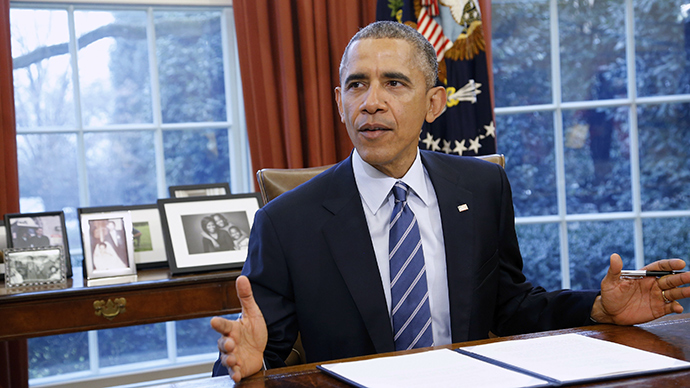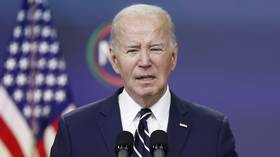'US policy in the Middle East is sclerotic swinging back and forth'

The US seeks to weaken the influence of the Iranian government all over the region the same as it did with Iraq, Libya and Syria, fearing any nation becoming too independent, Eugene Puryer from Answer Coalition told RT.
RT:US Secretary of State Kerry said preventing Iran from getting nuclear weapons is just the first step. So what is the end-game? Does the US hope to weaken Iran's regional influence in the long-term?
Eugene Puryer: Absolutely. The entire thrust of American policy has been to weaken the influence of the Iranian government all over the region in the same way that they have [done] starting with Iraq beginning in 1991. And also we’ve seen Libya and what they have waged in Syria. The US government really fears any nation becoming too independent and potentially being able to block or upset the international order that they have established. I think from jump street what we have seen with the US policy towards Iran is that they want to weaken their influence. And I think…they want to try to set the stage for a regime change. I think the only difference that we see is that the Obama administration recognizes that the Iranian regime is much stronger and more difficult to overthrow. So it certainly wants to encircle it and weaken it while the Republican Party seems to want to attack straight ahead.
READ MORE: Iran’s supreme leader slams ‘backstabbing’ Americans over senators’ letter
RT:The US has voiced concerns about Iran's growing influence in Iraq and yet Iran has become a key player in the fight against Islamic State. So Washington wants to weaken Iran but also needs its help. Is this position somewhat contradictory?
EP: It’s absolutely contradictory…The US policy in this area is so sclerotic and in so many different ways swinging back and forth between who they are going to support and who they are not. They are having these bizarre situations where they are essentially collaborating on the same military campaigns in Iraq but they are not communicating with each other at all. And this attempt to put a firewall between the two nations while continuing to engage in campaigns with some synergy is something that really ultimately is not working very well. It really is one of those types of things that are driven by politics where the US doesn’t want to be seen as cooperating in any way with Iran. Even those circumstances in context seem to dictate that they would work closely together. So I think it speaks to the fact that the US foreign policy in the region is extremely destructive and creates so many fault lines that usually when the US intervenes it creates even more problems and so it’s even more divisive.
READ MORE: ‘Endless war’ protester rebuffed by Kerry at ISIS hearing
RT:About the letter from Republican senators - warning they could block any deal with Iran - Kerry said they will not be able to modify any agreement, after it is signed. So who is right here?
EP: I think in a weird way both are right. Obviously there is the tradition of having treaties approved by Congress. But as we’ve seen the Obama administration has already established what they believe to be a definitive legal framework for them to be able to sign a deal with Iran without having to allow Congress to potentially torpedo it. So I think that the President will be able to prevail. [The letter]… certainly does a lot of bluster and I think we will continue to hear that. But at the end of the day I don’t think there is anything substantive they’ll be able to do to hamstring the Obama administration. But obviously they are going to try every single angle they can, every piece of legislation they can pass, every piece of public pressure they can bring on the President to try to force him to put the deal before them so they can find a way to sink it. I think Senator Cotton has said the whole purpose of the letter is to torpedo the talks and it’s not really to let Iran’s leadership learn something.
The statements, views and opinions expressed in this column are solely those of the author and do not necessarily represent those of RT.
The statements, views and opinions expressed in this column are solely those of the author and do not necessarily represent those of RT.












